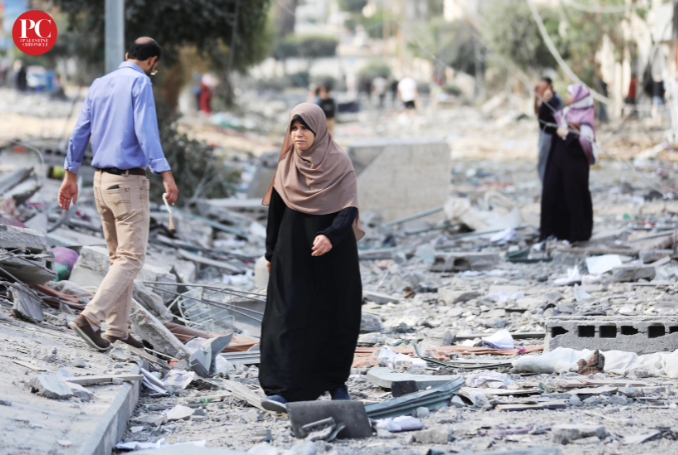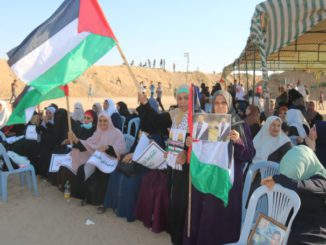
By Benay Blend
Mainstream history of the United States begins with the American Revolution, an event, the story goes, that initiated the country’s experiment with democracy. There is no mention of enslaved people who built the South.
Most tribal people have origin stories that explain how they arrived at a specific place. Countries, too, tell such tales but theirs are very different. For both “Israeli” and American historians, the past is tailored to fit into a positive trajectory filtering out parts that that cast dispersion on state actors.
For example, mainstream history of the United States begins with the American Revolution, an event, the story goes, that initiated the country’s experiment with democracy. There is no mention of enslaved people who built the South; no allusion to Native people who were murdered and displaced in order to make room for Western expansion; no mention of immigrants who found that the streets were not made of gold, that is, if they survived the horrendous voyage from Europe.
“Israel,” too, has its origin myths. Their story begins with immigrants who arrived fresh from the Holocaust in Europe, and who quickly turned a vacant land into a thriving garden. Like the Americans, who slaughtered Natives who stood in the way of “progress,” “Israel” has its own version of Manifest Destiny, simply change the Indigenous population to Palestinians who in the Zionist version of history did not exist.
This trope runs throughout the writing of liberal Zionists. As Ilan Pappé observes, not much has changed in “Israel” since October 7. In “The Righteous Fury of the Israeli Left,” he explains that “liberal Zionists, mainly through the newspaper Haaretz – but also with the support of liberal Zionists around the world – loyally stand behind Israel’s actions.”
At this point in history, Pappé concludes, there is no middle ground between support for the liberation movement and those who are against it. “There is no way of supporting the liberal occupier, the progressive ethnic cleanser and the leftist genocider.”
Nevertheless, those astute enough to know that the wind is no longer blowing in their direction have tried—and failed miserably—to straddle all sides of the October 7 question. For example, Thomas L. Friedman in his recent piece in the New York Times appears at first glance to have moved on from his staunch Zionist position to offer a critique of “Israel’s” current policy.”
“The Israel we knew is gone,” Friedman writes, “and today’s Israel is in existential danger.” In this sentence alone he expresses so much of what is wrong with the Zionist position. Assuming that “Israel” was founded as a liberal democracy, Friedman dismisses the “Israel” that some of us know as the perpetrator of the Nakba.
Moreover, he implies that the problem lies solely with Netanyahu and his far-right henchmen who alone have brought “Israel” to this point. If only he could be replaced with “a pragmatic centrist government that can lead [Israel] out of this multifaceted crisis” then all would be well again for the entity.
Trying to convince his readers that Netanyahu and his government are the problem distracts from the real issue of settler colonialism and genocide.
Friedman’s solution is to “end the war in Gaza,” so as to restore “Israel’s” “global moral standing,” despite its ongoing genocide against the Palestinians which has resulted at this point in 37,598 dead, 86,032 wounded, and 11,000 missing under the rubble created by US-funded bombs.
Nowhere in this piece does Friedman express concern for the suffering of Palestinians, for which he predictably blames Hamas. “Up to now, the real history of Jews and Palestinians,” he concludes, “going back to the early 20th century, has been: war, timeout, war, timeout, war, timeout, war, timeout. And the real difference is what each side did in the timeouts.”
In this way, not only does Friedman rewrite “Israeli” history, leaving out the Nakba from his version of its origin story; he also does not acknowledge the daily Nakbas that Palestinians have endured during the so-called “timeouts” that he suggests were part of a cycle of violence that in reality consisted of 76 years of siege.
Several years ago there was a sign that appeared at demonstrations here in Albuquerque, New Mexico where I live: “Stop the 30 billion. Restore humanity to Israel”—as if it was that simple, as if “Israeli” feelings were more important that the suffering of Palestinians. That sign encapsulates everything that is askew in the thinking of liberal Zionists, including, in addition to the obvious, the implication that “Israel” ever was a moral citadel that could be restored by anything less that the dismantling of the Zionist regime.
“Israel has always promoted comforting counterimages,” observes Steve France, “fairy tales, in effect — about its moral impeccability. The effect is to impugn critics’ motives and displace factual specifics with loud and emotional ‘affirmation of values such as tolerance, [and] diversity’ – all to get away with ‘unspeakable – and unspoken of – crimes.’”
France concludes that “Israel” today has “finally destroyed any hope that it will evolve toward honest history, or true democracy, diversity, or tolerance.” If “Israel’s” version of its past is defunct, exposed as the fraud it has always been, what is to take its place?
In “Dismantling the Violent Discourse if the State of Israel: On Zionism, Palestinian Liberation, and the Power of Language,” Ramzy Baroud and Romana Rubeo explain that “utilizing positive language to frame horrific historical events is a core element in the historical discourses of colonialism and neocolonialism.”
Their article concludes with the need for “Palestinians to challenge the Zionist discourse and eventually claim their own narrative as part of their ongoing struggle for liberation and, ultimately, decolonization.”
In this version, “Israeli” trauma from World War II can be cited as an explanation for their behavior in 1948 and afterward, but not as an excuse, as it is so often used. Though generational trauma exists, in this case it is used to reverse “Israel’s” role to that of victim rather than a settler colonial state, following in the footsteps of their benefactor, the United States.
In an interview with Pluto Press, Baroud reiterates that “no one is more qualified to speak for Palestinians, but Palestinians themselves, especially the refugees amongst them – those who have paid the heaviest price for Israeli atrocities, and whose collective identity is shaped by seven decades of a relentless fight for freedom.”
Baroud understands quite well, having grown up in Nuseirat camp. Although his homeplace has been the site of relentless massacres, he also wants to stress that his was “a life that was fully lived, memories that cannot be forgotten, and a future of freedom and dignity that is waiting to take shape.”
“Will the liberal and credible media accompany this transformation and change gear to embrace our narrative?” asks Jejan Helu, once a pioneer in the Palestinian National struggle and women’s liberation movement. “Will the Palestinian narrative find Safe Haven at last?”
Through a new generation of Palestinian resisters, hers is a question that at long last is finding an answer.

– Benay Blend earned her doctorate in American Studies from the University of New Mexico. Her scholarly works include Douglas Vakoch and Sam Mickey, Eds. (2017), “’Neither Homeland Nor Exile are Words’: ‘Situated Knowledge’ in the Works of Palestinian and Native American Writers”. She contributed this article to The Palestine Chronicle.







